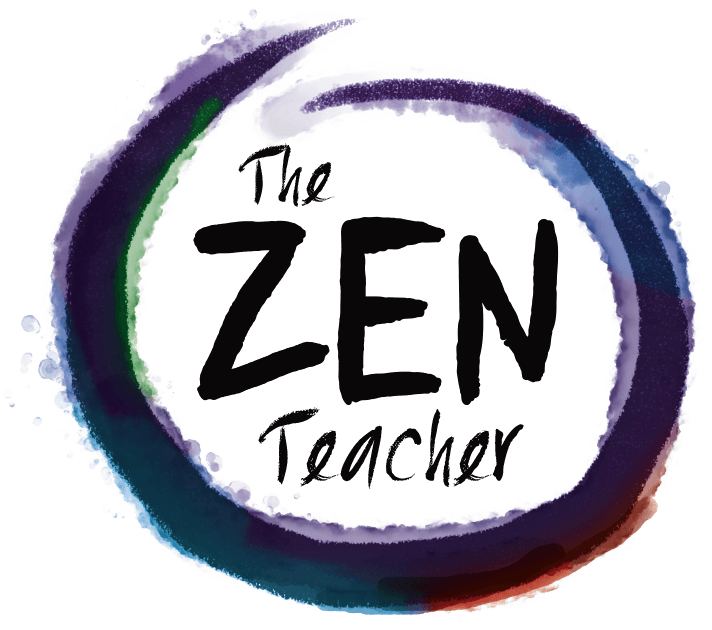“Be yourself; everyone else is already taken.”
–Oscar Wilde
Parker Palmer’s book The Courage to Teach: Exploring the Landscape of the Inner Landscape of a Teacher’s Life changed my life. It was recommended by one of my teaching mentors around my twelfth year in the classroom, and reading it was a revelation.
Among the many nuggets of wisdom Palmer imparts, is the idea that not only do you have to teach who you are, but that the real you always comes out, anyway, because it’s impossible to fake your way through teaching in the classroom, so you might as well embrace it.
Palmer’s claim was mind-blowing because I never thought being me was enough. I thought I had to be special, more, better, different. Throughout my early years, a tape loop in my brain kept lobbing little psycho mental and emotional grenades at me. Things like:
- You’re not good enough
- You’re not serious enough
- You’re not experienced enough
- You’re not smart enough
- You don’t know enough about your subject
The Imposter Syndrome was serious, ya’ll.
But mostly what it told me was that my dumb hobbies and the silly things I’m interested in and excited about had no place in my classroom.
But Palmer’s books told me that it was okay to be who I was when I taught and he gave me permission to just be me.
All of me.
And to use ALL of the parts of me whenever they were called for.
What a relief!
After reading The Courage to Teach, I started noticing all of the other teachers who were teaching who THEY were. Regardless of the subject matter, the one who was into music had musical lessons, the one who was into dinosaurs had dinosaur lessons, and the one who was into magic did magic tricks in his lessons.
Talk about student engagement!
The exciting part was that I then began to wonder what parts of me could I now welcome into the classroom to create a more authentic experience both for myself and my students.
Turns out it was stuff like:
- My encyclopedic knowledge of 70s sitcoms. Not that they’d ever heard of Fonzie or Gabe Kotter, but whatever.
- My sense of comedic timing and delivery that emerged from the fun I had doing open mic nights at The Comedy Store in San Diego and in Los Angeles right after college (I couldn’t tell those specific jokes in class, of course, but what better trial by fire training for teaching than trying stand-up?)
- My acting skills from when I was a drama major including storytelling, using costume pieces, and goofing around with character voices when I read the literature.
- And of course, poetry. Poetry was my jam and we never seemed to have time for it, so I learned to MAKE time for it because I loved it.
What I ultimately learned is that, as Palmer pointed out, you can’t stop being who you are when you walk into the classroom. And if you don’t intentionally work yourself into your teaching practice, it’s going to creep in any way, sometimes in ways you didn’t intend and wish it wouldn’t. Much better to do it on purpose.
So what does this have to do with being a Zen Teacher?
Here’s the thing: There’s a tremendous amount of stress connected to trying to be something you’re not. And the discrepancy between who you are and who you’re PRETENDING to be can cause a great deal of overwhelm and anxiety. Consequently, giving yourself permission to be who you are and to TEACH who you are, lowers stress because you are more aligned with your true self. And lower stress means more peace and more peace that maybe you have a better shot of making to retirement.
So both Parker Palmer and I are here to tell you:
Don’t be afraid to be you.
Find the things that make you who you are and bring those things right into that classroom of yours.
Fly that freak flag.
(No, not that one. The other one. You don’t want a letter in your file. Let’s not get carried away).
The bottom line is . . .do not be someone or something you’re not.
That will just lead to stress and burnout.
Not to mention your students are smart.
They’ll smell it a mile away.
It just might be time to embrace your quirks, your passions, your curiosities, your peccadillos*, and your interests.
It may seem counterintuitive, but they will not distance you from your students. On the contrary, teaching from a foundation of the REAL YOU will improve your relationships, create great rapport, and diffuse the stress you feel from trying to keep up facades all the time.
You’re awesome.
And because you’re awesome, you deserve to be the real YOU in the classroom.
And your students deserve the real you as well. TZT
*Does that word make anyone else blush? Just me? Okay, fine.
